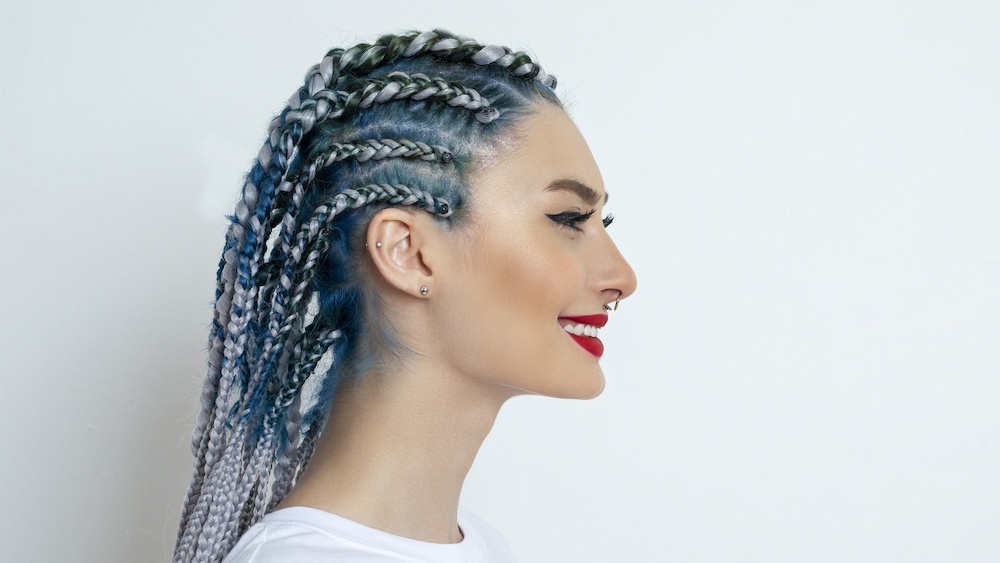If you’re interested in sharing your opinion on any cultural, political or personal topic, create an account here and check out our how-to post to learn more.
____
There’s a well known quote that says, “Everyone wants to be black until the cops come.” Today, it seems those words couldn’t be more truthful.
There seems to be a fetish when it comes to Black culture and its influence in the world. From the music, clothing, hair, food, fashion and almost everything in-between, Black culture is picked apart and used in modern day society for just about everything you can imagine. People all around the world enjoy what the culture brings to them, but not so much the people that are attached to it.
The conflict of Black culture being used in mainstream media and brands sticks out like a sore thumb when trends are being appropriated, renamed and just plain out stolen. The problem lies here: Why is it that things once deemed “ghetto” or “too Black” are now the things to rave about? Braids, du-rags, extra long nails, gold teeth, excessive jewelry and street-wear are all parts of what define Black culture, yet, it’s only accepted widely when a celeb or influencer, not connected to the culture, gives their spin of the trend to the world.
Other minorities outside of the American Black culture generally have a sense of unity in their heritage and upbringing that they can identify with. Black culture is unique in the sense that many black americans do not have a detailed family tree of where, who and what their family history is made up of, outside of slavery. So for those in the black culture who have worked effortless to find a sense of placement in this world after years of suppression due to mainstream backlash, the simple fact that black culture is being exploited by others who have an actual identity to hold on to, is where angst forms.
It’s a bit of flattery and a hard slap in the face at the same time. If people are going to embrace the culture and the things that come with it, then they should also embrace the innovators of color that started the trend(s) they are obsessing over and false calming as their own. A lack of recognition is present when it comes to giving Black creators the recognition they deserve. From Miley Cyrus, The Kardashians, Drag Culture, Runway Fashions and countless numbers of social influencers, so many have taken it upon themselves to coin phrases or styles that are synonymous with black culture, and quite frankly it's a middle finger up to every black creator not receiving the credit that's due.
Platforms like Tik Tok are notorious for highlighting copycats in place of the original content creators, which proves the point of popularity only surrounding non-POCs that are deemed cool. The excitement for the things we do and create is getting quite old, especially if the same energy isn’t placed around giving the real creators the respect that’s due.
The problem here is not so much surrounding cultural appropriation, but more-so cultural appreciation. When people are using a culture that’s not their own for personal gain with no real interest to learn about the history of it, it triggers the people who have worked hard to get their heritage, work and lineage recognized by the world. Respect will come from the Black community when people go into a situation looking to gain a full perspective on the culture, allowing room for them to make a real life connection, instead of a mockery.
There are a few things that can be implemented into the patterns of non-POCs in order to give the respect that’s due and also learn from the culture — instead of exploiting it.
Here are a few tips for those who love — and respect — Black culture:
1. Read Up
Reading is a fundamental tool that can be helpful for many people when they are looking to have accurate information surrounding something they are interested in. If you want rock braids, that's fine, but read up on what braids do for Black hair as a protective style and also get to know the origin of braids themselves. There's history behind everything, so the best thing to do is to simply educate yourself about where things derived from and how they play a role in today's society.
2. Consider The Context
Considering the context of what you are wearing, saying or imitating is always a good idea to avoid backlash or offending people of the culture you may have borrowed from. Before you put on a Dashiki , get to know the symbolism beyond these styles. Try to get a full understanding of what it represents for those who rock these styles with pride. Same goes for using certain terms of endearment we use for each other like, "sis," "beloved" and "dawg." You shouldn't be using these terms as a filler in a conversation to make yourself look relatable. It'll most likely come across as offensive.
3. Credit The Source
Crediting the sources is the key element that needs to be implemented when it comes to paying respect to Black creators for their influence over the world. It's all boils down to a Google search. Know what you're representing and why it's important to the person that created it. There’s a story behind every song, dance, style and trend in Black culture.
Think about like this: Imagine if your family created hoop earrings and they've been trying to get the world to see how great the item was for the longest. Then suddenly, this influencer comes along and introduces the world to "the hoop" without saying that they got the idea to wear this fashionable accessory from you and your family. How would that make you feel? Not too great, huh? Just simply credit the source.
